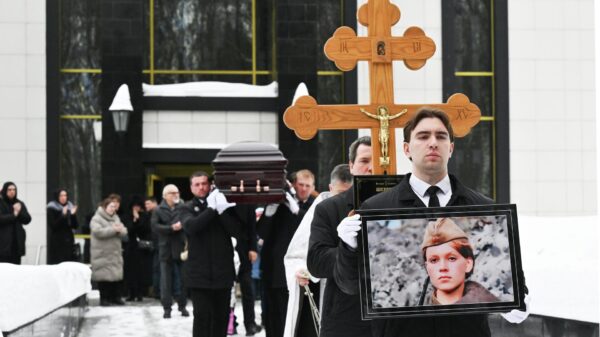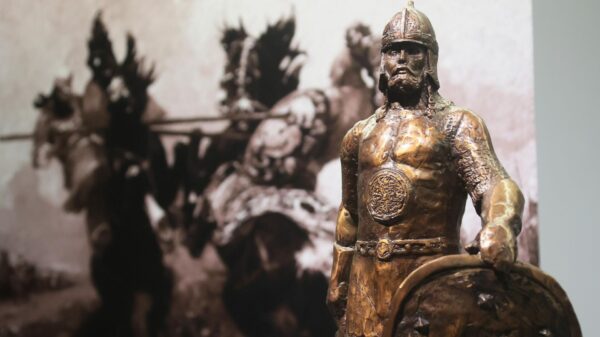 A boisterous Doohan van der Merwe lifted Murrayfield to its feet and exposed England's lack of stellar, breathtaking talent. Photo: Action Images via Reuters/Lee Smith
A boisterous Doohan van der Merwe lifted Murrayfield to its feet and exposed England's lack of stellar, breathtaking talent. Photo: Action Images via Reuters/Lee Smith
Three times Murrayfield became a melting cauldron of noise, fathers and sons high-fiving each other in the chaos. All these scenes were sparked by the same man: the blond bullet that is Scotsman Doohan van der Merwe, whose breakneck pace tore England apart once again. The more you watched him, the more you saw a player dazzled by his talent, visibly beaming whenever the ball bounced obligingly into his hands. And the more you wondered, as 67,000 fans stood to cheer his hat-trick, why his opponents couldn't find someone with such brilliance to compare with.
Supporters outside the press box rose to their feet as Van der Merwe set off on another familiar freight train ride. He is the most valuable asset of any Test team, a player whose very presence can lift people to their feet. And this is perhaps the most noticeable emptiness in England. The only figure they have that can ignite the crowd in one fell swoop is Marcus Smith, but he is injured. But even when fit, the midfielder's play is too chaotic to draw parallels with Scotland's outstanding striker. The search for a true game changer continues under the leadership of Steve Borthwick.
Just as he was named man of the match, Van der Merwe was shown a yellow card for a dangerous tackle on Tommy Freeman. The fans here in Edinburgh were unlikely to care as Scotland won the Calcutta Cup for the fourth year in a row for the first time since 1896. Van der Merwe may have been born in Johannesburg, educated in Pretoria and included in the South African sevens team, but on the current stage he might as well have been donning a ceremonial tartan. When you have such an explosive player, any debate about the plasticity of nationality can wait.
For England, inconvenient questions only multiplied. How could the midfield trio of George Ford, Ollie Lawrence and Henry Slade end up so unlucky? Why did they agree to score three points when the score was 24-13? How did Maro Itoje become so anonymous? You knew the game was falling apart when Ford was replaced by Fin Smith after just 61 minutes. The impression was finally confirmed when Lawrence, desperate for fluidity in the attack, only managed to pass the ball straight into touch.
It is not that England is unhappy or hopeless under Borthwick. This seems too damning a verdict after the cautious optimism generated by two narrow victories. It’s just difficult for them to provoke any strong reaction at all. They look like what they are: a second division team in constant transition, struggling for some semblance of identity. They thought they had discovered it when George Furbank completed a magnificent, sharp move to silence the choruses of «Flower of Scotland.» The rest of his evening was neatly summed up when he took a pass from Ford straight to the face.
Such is the astonishing inconsistency of England. Every time they seem to have made a breakthrough, they revert to the chaotic type. One of the most pressing concerns is halfway through the flight. It's a dubious audition orchestrated by Ford in England's agonizing quest to create a long-term replacement for Owen Farrell. His strength lies in his quick thinking, his ability to hit the odd goal from 35 yards and stop his team's bleeding. But in this case, its distribution was deplorable, its connection with the external rear areas was absent. His premature substitution signaled that his chances of establishing himself as England's number 10 may already be faltering.
“There’s some really great stuff there,” Jamie George said. I should have asked what game the England captain was watching. Apart from some deft movement that culminated with Furbank's try, his side were unforgivably error-prone and failed to capitalize on either a fast start or a monopoly of possession and territory. With so many errors in handling, one shudders to think of the damage that can still be done by Ireland and France. Borthwick had very little time left to use all the talk of transition as a crutch.
It was a grueling experience, especially for George. The prostitute took a deep breath at the end of «God Save the King»: a sign that on this most auspicious day of his career, he had barely begun to untangle his emotions. George had lost his mother, his biggest fan, a week ago and her absence had been keenly felt on every level, right down to the text message she used to send him an hour before kick-off. This had to be one of George's proudest moments. But it all ended, as often happens in England, with punitive retribution. While Scotland was privileged to witness something truly extraordinary with Van der Merwe, the men in white could only curse their apparent mediocrity.


























































Свежие комментарии